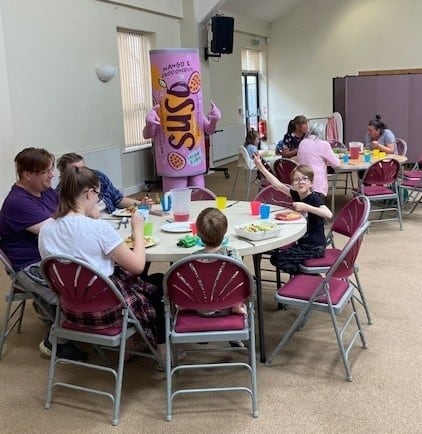Building a Balanced Plate: Strategies for Nourishing Fussy Eaters
Meal times can often be a battle for parents of fussy eaters. As much as we want our children to eat healthy food and get the necessary nutrients for their development, it can be a struggle to get them to even take a bite. However, as parents, we have the power to empower our children and make meal times a positive and nourishing experience. Positive contributions towards a balanced plate helps provide our children with the necessary nutrition for their growth and development.
Creating a positive mealtime atmosphere
Creating a positive mealtime atmosphere is essential when dealing with fussy eaters. By setting a patient and encouraging tone, children are more likely to feel relaxed and open to trying new foods. Adult role models play a crucial role in this process. When parents exhibit healthy eating habits and a positive attitude towards food, it greatly influences the child’s behaviour. Be patient and continue to offer a variety of nutritious options.
Try creating a pleasant environment at the dining table, such as using colourful plates and engaging in conversations which can make mealtimes enjoyable for the whole family. Children like routine and structure as it provides them with a sense of security. It’s recommended that schedules and regular patterns can help structure mealtimes better, such as sitting in the same place and following a mealtime schedule. Remember, a positive mealtime atmosphere is key to nurturing healthy development and building a lifelong love for nutritious food.
Engaging children in meal planning and preparation
Engaging children in meal planning and preparation is a fantastic way to encourage them to try new foods and develop a love for healthy eating. By involving them in the process, you can empower them to make their own choices and take pride in their creations. Start by discussing different meal options with your child and letting them pick out ingredients when shopping to bring the fun into the process.
Once you’re in the kitchen, assign age-appropriate tasks, such as washing vegetables or stirring ingredients. This helps make them feel like active participants in the mealtime process. Studies show that children involved in the meal planning and the cooking process are more likely to try new foods, eat a more balanced diet as well as better overall health outcomes. By acting as adult role models and involving our children in meal planning and preparation, we can cultivate their interest in nutritious foods and set the stage for a lifetime of healthy eating habits.
Parental influence: role modelling healthy eating habits
As parents, we have a tremendous influence on our children’s eating habits. Our role as adult role models is crucial in shaping their attitude towards food and healthy eating. By demonstrating healthy eating habits ourselves, we show our children that nutritious foods are important for our own well-being. Research shows that children whose parents eat more fruit and vegetables typically eat more of these foods themselves. It is helpful to talk about foods that you enjoy so that children are encouraged to try them too. Try to avoid negative comments about foods as this could make children not want to be open to trying new things. Sharing positive experiences and enjoying a variety of nutritious foods as a family can inspire our children to follow our example.
Recipes and meal ideas for fussy eaters
You can make mealtimes fun for fussy eaters, one idea is to make colourful and creative food presentations using their favourite characters or themes. For example, you can make a superhero sandwich with a variety of colourful veggies hidden inside. Another option is to turn mealtime into a fun adventure by creating a “build your own” pizza station, allowing your child to choose their own healthy toppings and get creative with their pizza design.
Allowing your child to have a glass of water at mealtimes or fruity drinks such as SUSO, which are 1 of your 5 a day, will make the process of trying new foods more comfortable. Sugary drinks can make children too full when eating so it would be advantageous to opt or a better-for-you alternative instead.
By involving your child in the meal planning and preparation process, you are not only empowering them but also inspiring them to try new foods. Remember, as adult role models, it’s important to show enthusiasm for nutritious meals and to make mealtime an enjoyable experience for everyone.

Sources:
https://www.gosh.nhs.uk/conditions-and-treatments/procedures-and-treatments/mealtime-strategies-and-food-exploration/
The benefits of involving children in meal planning and cooking.
https://www.childfeedingguide.co.uk/tips/common-feeding-pitfalls/role-modelling/
https://raisingchildren.net.au/toddlers/nutrition-fitness/common-concerns/fussy-eating








